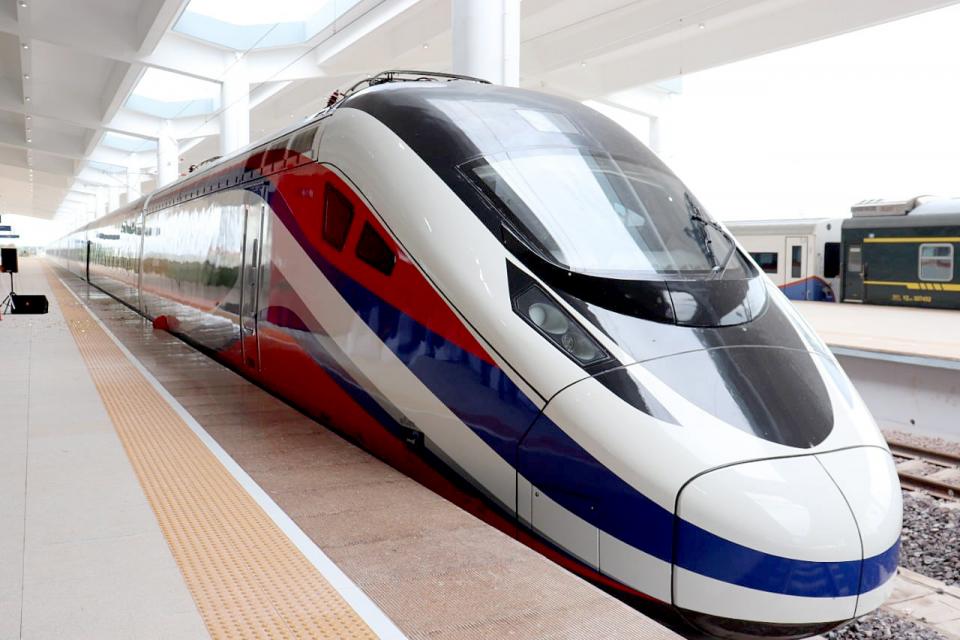The train will connect the Chinese city of Kunming to the Laotian capital Vientiane. ©AFP
Laos held a Buddhist ceremony on Laos National Day Thursday 2 December 2021 to bless its new $6 billion high-speed rail line, a Chinese-led initiative that marks one of the biggest leaps towards modernisation by one of Asia's least-developed nations.
The route will connect the Chinese city of Kunming to the Laotian capital Vientiane, with grand plans for high-speed rail to ultimately snake down through Thailand and Malaysia to Singapore.
The communist-run country of 7.2 million people previously had only four kilometres of railway tracks.
But now sleek red, blue and white bullet trains will speed along the new line at up to 160 kmh (100 mph), passing through 75 tunnels and across 167 bridges, stopping at 10 passenger stations.
Laos state news agency KPL said the project was part of the government's strategy to convert Laos "from a landlocked country to a land-linked one".
The rail line, which China hopes to eventually extend to Singapore, is part of its ambitious Belt and Road Initiative (BRI).
Buddhist monks chanted at a new railway platform and blessed a train car with water and auspicious markings ahead of Friday 3 December official opening.
With a population of 7 million and gross domestic product of just $18 billion in 2019, communist Laos is one of Asia's poorest nations.
Economists have warned the rail project could complicate its challenges in repaying external debt, much of it to China.
China holds a 70% stake in the rail joint venture established in 2015.
Total investment was 50.55 billion yuan ($7.93 billion), according to an article by China's Belt and Road Portal earlier this year. KPL put the value at $5.98 billion.
For Nokphone Photsavang, 35, who works in the hotel sector, the rail project will be a boon for Laos.
"I believe the railway will bring a lot of opportunities and I'm looking forward to the economic growth," Nokphone said.
"It also eases travel between towns and will bring families closer together."
(Reporting by Phoonsab Thevongsa in Vientiane; Additional reporting by Ella Cao in Beijing; Writing by Patpicha Tanakasempipat; Editing by Martin Petty)












